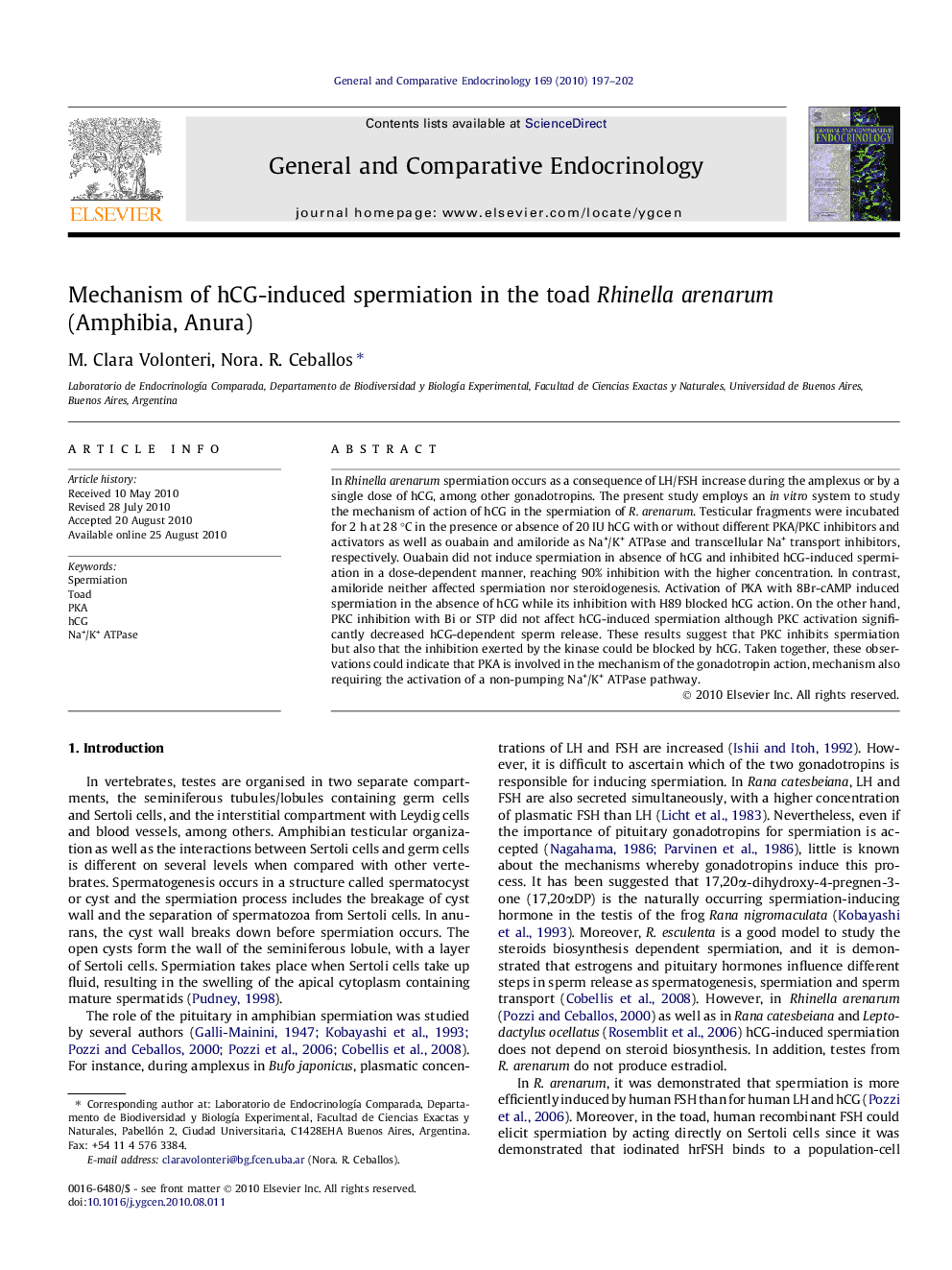| Article ID | Journal | Published Year | Pages | File Type |
|---|---|---|---|---|
| 2801141 | General and Comparative Endocrinology | 2010 | 6 Pages |
In Rhinella arenarum spermiation occurs as a consequence of LH/FSH increase during the amplexus or by a single dose of hCG, among other gonadotropins. The present study employs an in vitro system to study the mechanism of action of hCG in the spermiation of R. arenarum. Testicular fragments were incubated for 2 h at 28 °C in the presence or absence of 20 IU hCG with or without different PKA/PKC inhibitors and activators as well as ouabain and amiloride as Na+/K+ ATPase and transcellular Na+ transport inhibitors, respectively. Ouabain did not induce spermiation in absence of hCG and inhibited hCG-induced spermiation in a dose-dependent manner, reaching 90% inhibition with the higher concentration. In contrast, amiloride neither affected spermiation nor steroidogenesis. Activation of PKA with 8Br-cAMP induced spermiation in the absence of hCG while its inhibition with H89 blocked hCG action. On the other hand, PKC inhibition with Bi or STP did not affect hCG-induced spermiation although PKC activation significantly decreased hCG-dependent sperm release. These results suggest that PKC inhibits spermiation but also that the inhibition exerted by the kinase could be blocked by hCG. Taken together, these observations could indicate that PKA is involved in the mechanism of the gonadotropin action, mechanism also requiring the activation of a non-pumping Na+/K+ ATPase pathway.
Research highlights► Spermiation is not induced by inhibiting the Na+/K+ ATPase in the absence of hCG. ► Ouabain inhibits hCG-induced spermiation but not steroidogenesis. ► Amiloride neither affects spermiation nor steroidogenesis. ► The inhibition of PKA with H89 inhibits gonadotropin-induced spermiation. ► 8Br-cAMP induces spermiation in the absence of hCG but not increases hCG effect.
